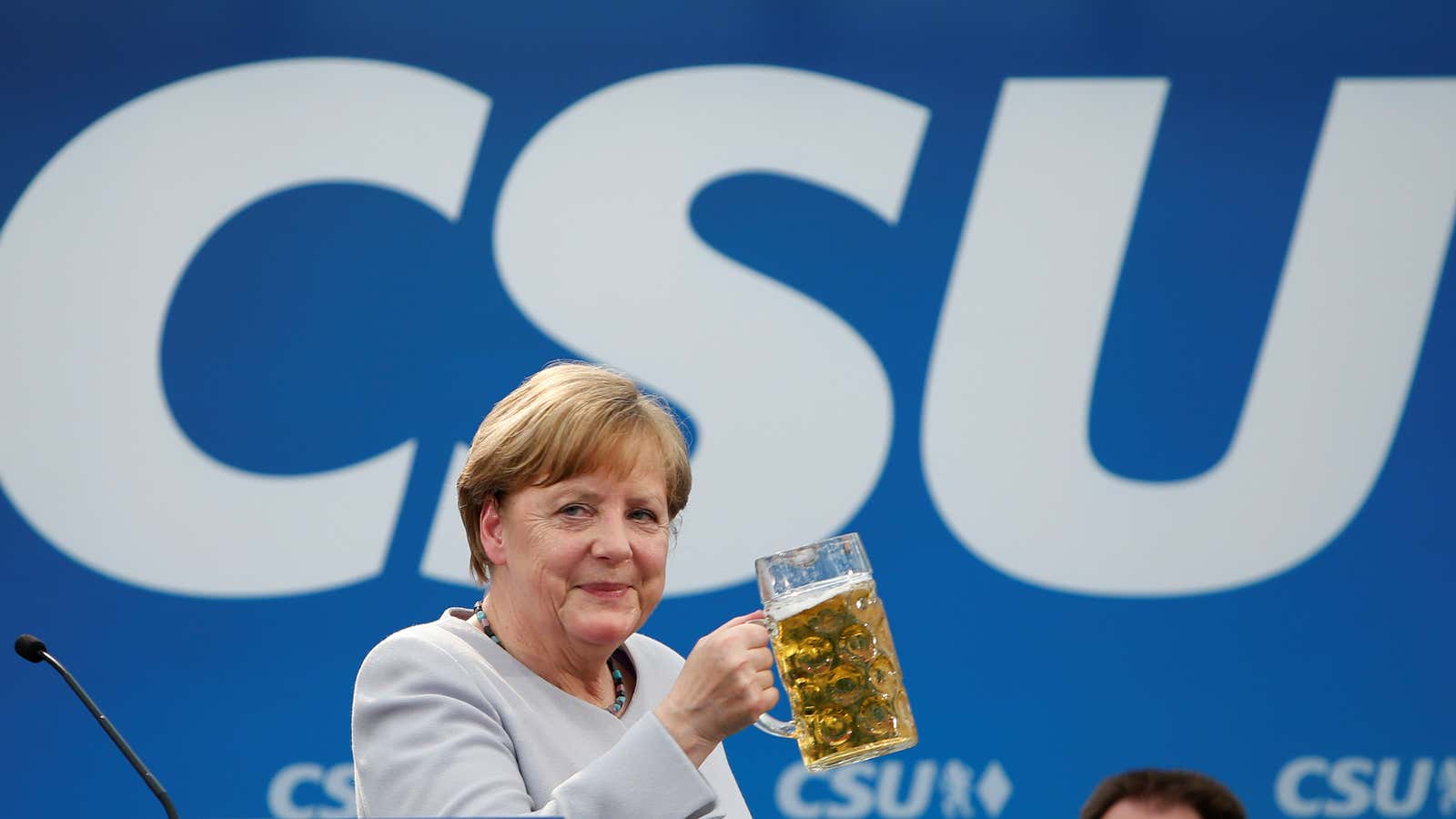After a disastrous NATO summit in which US president Donald Trump refused to say the two words that undergird Europe’s security, German chancellor Angela Merkel made a speech yesterday that is already being portrayed as iconic. Before putting away a stein or two of beer in front of a crowd of supporters in a Munich beer hall, Europe’s de facto leader seemed to announce a decisive shift in global geopolitics. British and US papers reported accordingly:
“Following Trump’s trip, Merkel says Europe can’t rely on ‘others.’ She means the U.S,” wrote the Washington Post.
“Merkel: Europe ‘can no longer rely on allies’ after Trump and Brexit,” said the BBC.
“Post-summit, Merkel says Europe ‘must take our fate into our own hands,'” reported USA Today.
British home secretary Amber Rudd hurried out first thing the next morning to reassure Germany that the UK intended to ”be a strong partner…in defence and security, and, we hope, in trade.”
But the vision Merkel was laying out wasn’t as sweeping as has been portrayed. Her spokesman Steffen Seibert was keen to point out that Merkel, who much admired the US when growing up in communist East Germany, wasn’t signalling a great rupture of the Western alliance: “It was a deeply convinced trans-Atlanticist who spoke,” he said today at a news conference.
A closer look at Merkel’s language confirms this. What the German chancellor, who is notoriously careful (paywall) in all her actions, actually said was: “The times in which we could completely rely on others are, to some extent, over.” Notice the “completely” and “to some extent”? You can be sure, with as shrewd a tactician as Merkel, that those clunky qualifiers were deliberate.
Instead of calling for a tectonic shift away from Washington, she’s seizing on the positive energy of newly elected pro-European French president Emmanuel Macron and the threatening overtones of US president Donald Trump to push for something she has long believed in, says Josef Janning, director of the Berlin office of the European Council of Foreign Relations. “She didn’t intend to signal that she wants to break away from the US; she wants to make the case for more Europe,” Janning says. “It’s the same way she responded to the Brexit referendum—by articulating that, in her view, cases that have the potential for driving Europeans apart should be countered by Europeans coming closer together.”
The feeling is that, after years of melancholy about a faltering EU, now is the time to press what the union has to offer, and ensure that it can buttress itself, rather than be reliant on Americans to rescue it should, for example, Russia’s Vladimir Putin starts fiddling with the EU’s borders in the same way he has done with Ukraine.
